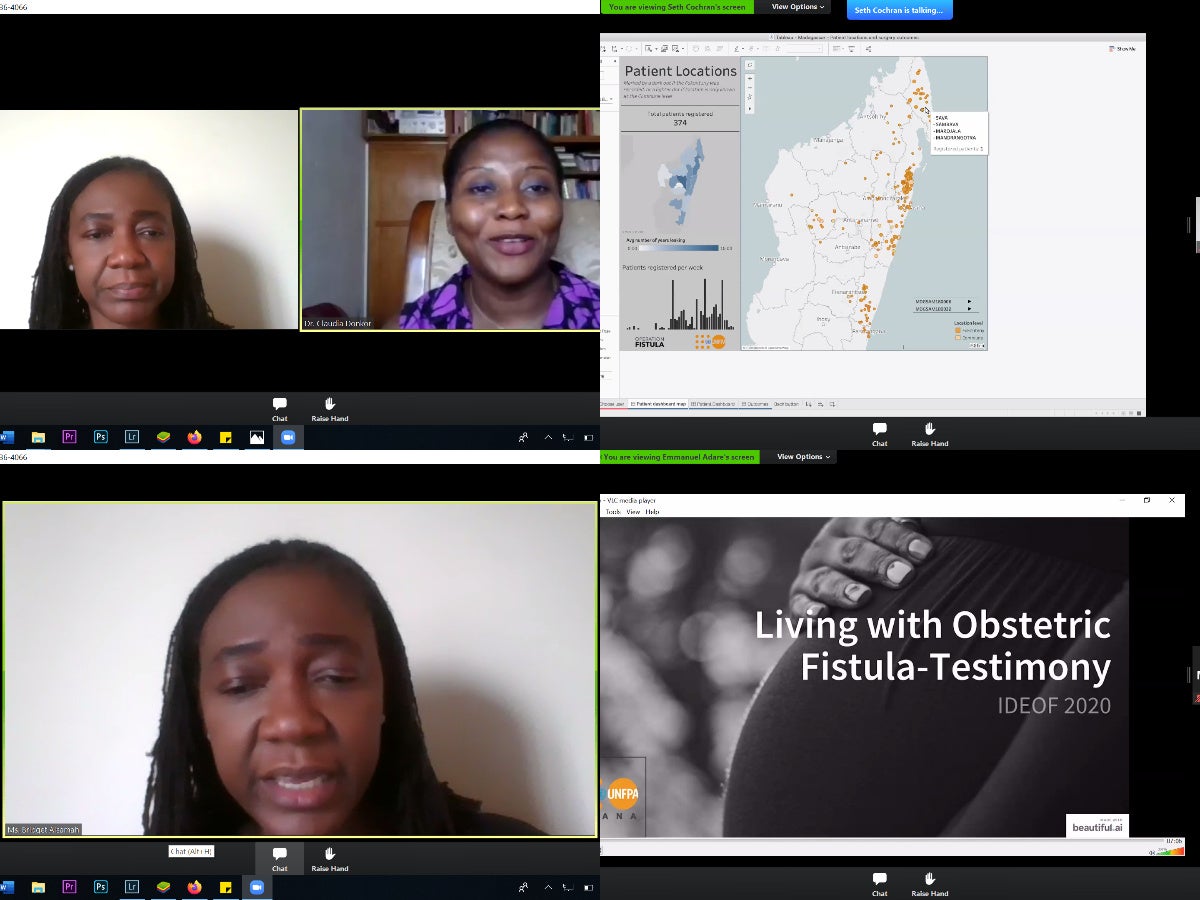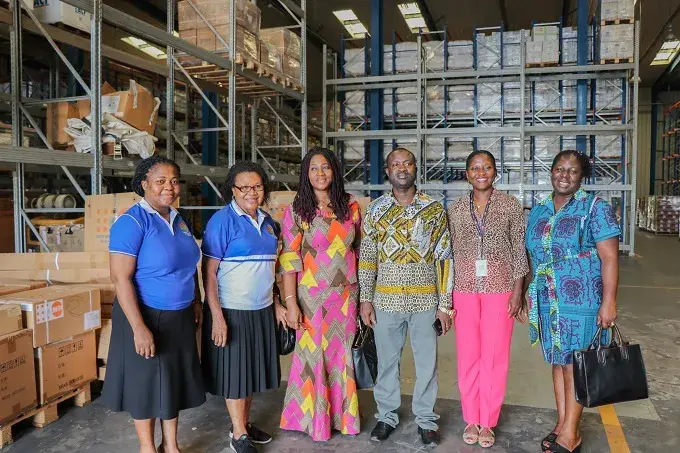Hannah is an obstetric fistula (OF) survivor. She was first diagnosed with the condition in 2010. She was referred to Korle-Bu Teaching Hospital to seek treatment. However, due to financial challenges she was unable to do this. She lived with the injury for 10 years before deciding to seek help because she could no longer manage the isolation. She had lost her child, got obstetric fistula, and her husband also left her; triple agony. Hannah was told she could seek help at the Mercy Women’s Catholic Hospital in Mankessim, a UNFPA supported facility for fistula surgeries. Here, she has undergone two corrective surgeries free of charge.
Hannah shared her story during an e-workshop organised by UNFPA Ghana on the 22 of May 2020 to mark International Day to End Obstetric Fistula. The session aimed at creating awareness on obstetric fistula and the need for the continuity of essential maternal health services and interventions amidst COVID-19 in order to prevent child-birth related complications like OF.
Technical Analyst at UNFPA HQ in New York, Ms. Bridget Asiamah, who moderated the workshop, described OF as a preventable injury resulting from prolonged labour where an abnormal hole develops between the rectum and the urinary canal, causing the patient to leak urine uncontrollably. In most cases, this injury is suffered by women and girls who live through socio-cultural and economic inequalities that delay or prevent early access to skilled-delivery care. This condition -which is curable- further deepens these inequalities.
Ms. Ruby Mensah Tagoe, a midwife at the Tema Metropolitan Assembly (TMA) Clinic and Ms. Francisca Eshun a new mother, both described their experiences as a health worker and an expectant mother respectively, during the COVID-19 crisis. According to Madam Tagoe, the clinic has put several measures in place to ensure continuity of care for mothers and their children. These measures include compulsory nose masks and temperature checks for everyone entering the facility, hand washing posts including hand sanitizers, and attendance by appointment in order to reduce the traffic at the clinic. Ms. Eshun attested to having observed these measures during her ante-natal, delivery and post-natal visits to the clinic. She added that, although she was initially nervous about these visits due the spread of COVID-19, she was reassured by the measures put in place, and her experience was safe. She and her baby are both in good health. She advised expectant mothers to follow her example and not miss out on essential maternal health services, which could be detrimental for them and their unborn children.
Dr Kofi Sekyere, the Public Sector Advisor for Marie Stopes International, highlighted the importance of ensuring the continuity of essential maternal health services and interventions during COVID-19. According to him, the indirect adverse outcomes of the coronavirus pandemic could more severe than those arising from the virus itself. Studies done in 4 countries have shown that 12 months of the pandemic can lead to about 32,000 additional maternal deaths than would have occurred otherwise. It is therefore imperative to focus on contraceptive security, uninterrupted ANC, sustainable facility-based deliveries and uninterrupted PNC. He added that, “We need to create awareness on the availability of these services, and also make sure that service providers have adequate PPEs and the requisite training to deliver services while observing safety protocols. This will help prevent complications like obstetric fistula.”
The workshop ended in a fruitful discussion with the over 200 participants gaining more information on available maternal health including obstetric fistula care services. Hannah’s injury reflects the reality for approximately 700 to 1500 women and girls in Ghana every year. May 23rd is annually observed the world over as International Day to End Obstetric Fistula.





